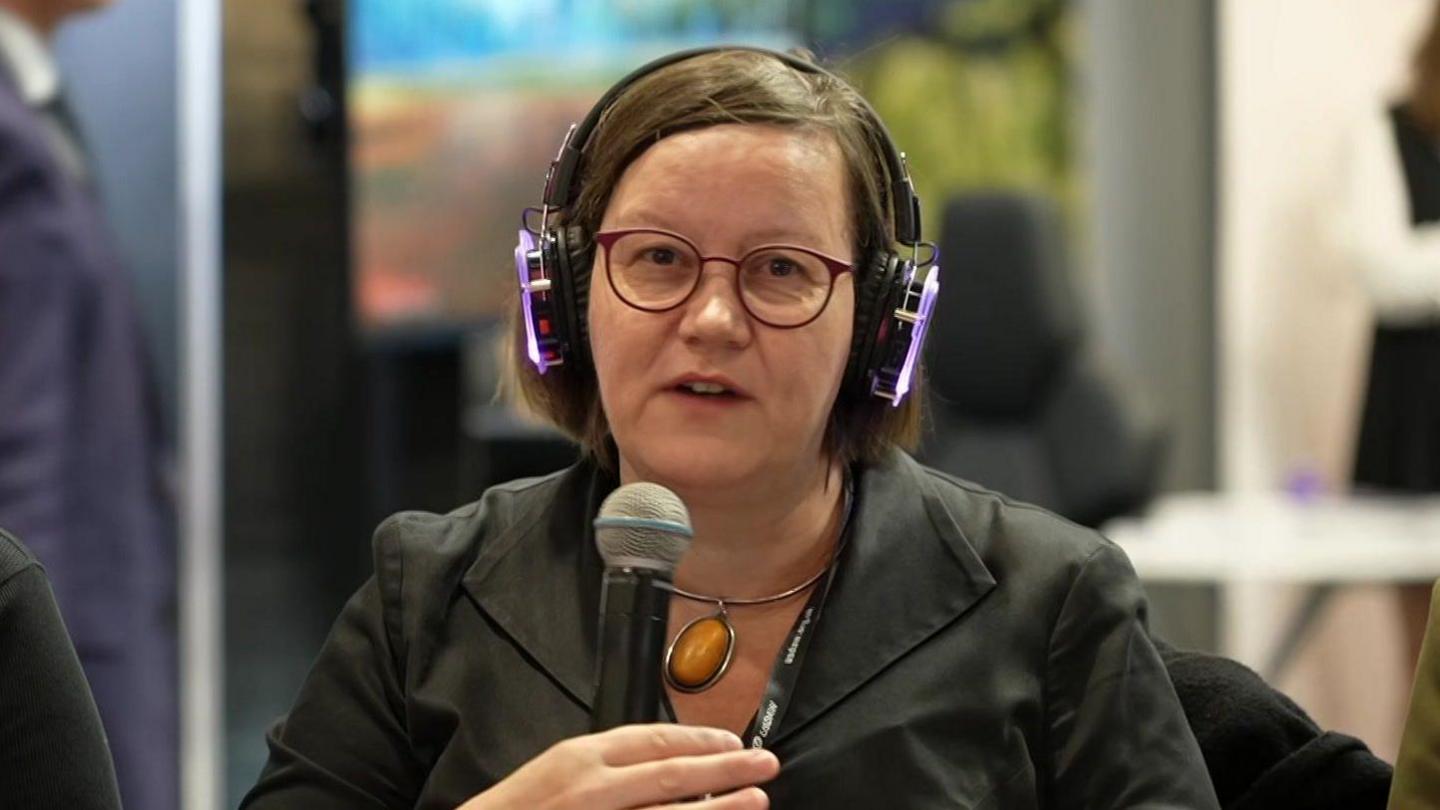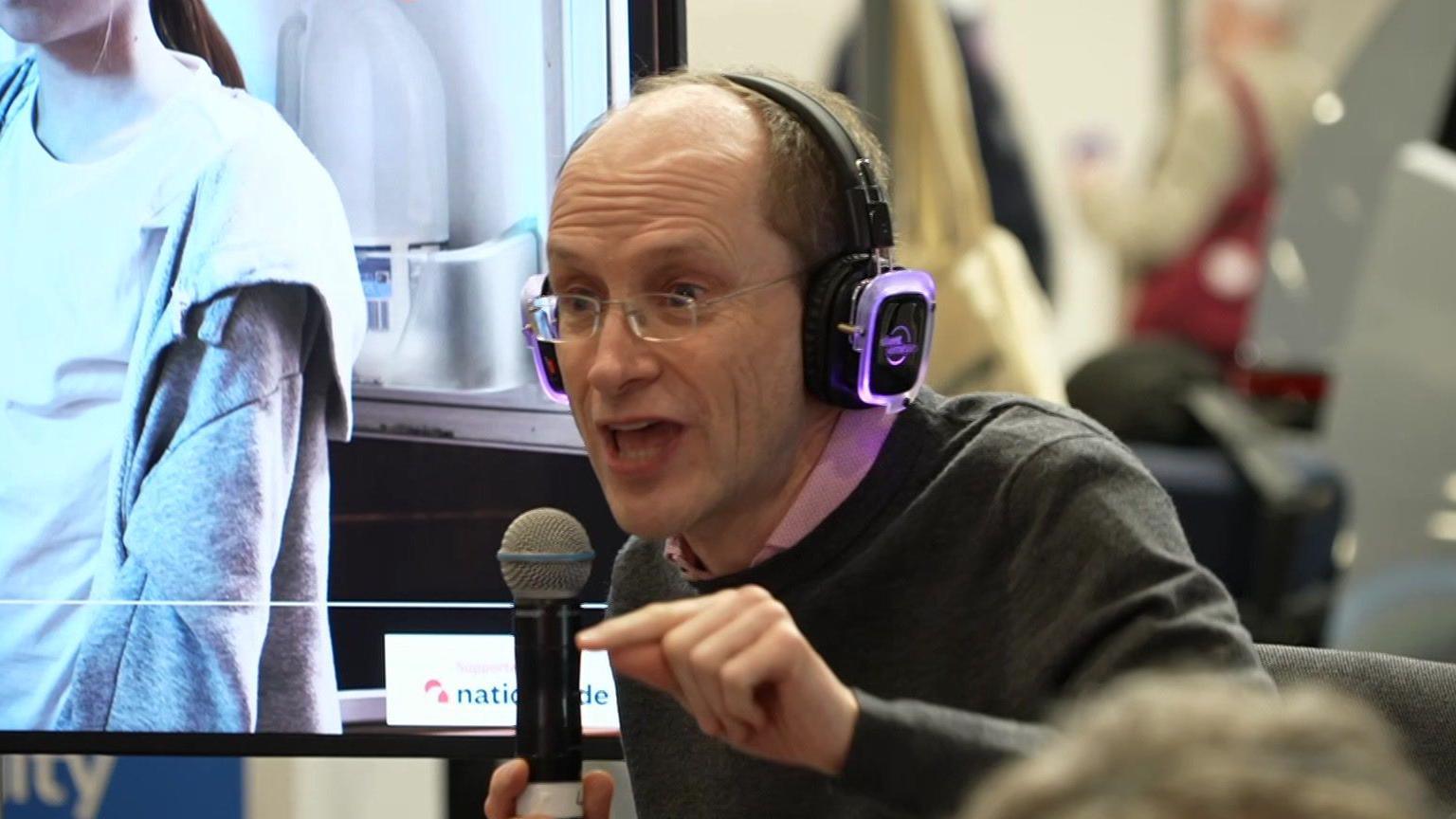Scrapping child benefit cap makes economic sense, Reeves told

Dame Meg Hillier says child poverty is damaging to the economy
- Published
Chancellor Rachel Reeves must scrap the two-child benefit cap as an investment in the country's economic future, a senior Labour MP has said.
Dame Meg Hillier, who chairs the influential Treasury select committee, said ending the limit was not only the right thing to do morally, it also made economic sense in the long term.
With falling birth rates and fewer young people coming to work in the UK from Europe, she said the government needed to "invest in our young people" to boost growth and pay the pensions bill in years to come.
Ministers have hinted that the benefit cap, which was introduced by the previous Conservative government, could be lifted in November's Budget.
The government is facing growing pressure from its own MPs to end the cap, which prevents most families from claiming means-tested benefits for any third or additional children born after April 2017.
It comes after ministers were forced into U-turns on cutting the winter fuel allowance and some elements of universal credit after a backbench rebellion of Labour MPs.
Reeves has insisted she is committed to reducing child poverty, but has said: "We've also got to make sure the numbers add up."
The Resolution Foundation think tank says axing the policy would cost £3.5bn a year.
But the think tank, which until last year was run by Torsten Bell, who is now Reeves' top adviser at the Treasury, has also argued for axing the cap., external.
Speaking at a fringe meeting at Labour's conference, Dame Meg said: "If we lift the cap, that's 350,000 children immediately out of poverty and, crucially, 700,000 out of deep poverty in one fell swoop.
"It is the single, quickest measure to deliver the results we need to see."
Dame Meg, who for nearly a decade scrutinised government spending as the chair of the Public Accounts Committee, argued that child poverty, which is at an all time high in the UK, was linked to poor achievement at school.
And with record low birth rates in the UK and a drop in the number of young people coming from Europe, the country needed to invest in young people because "they will be paying our pensions for a long time to come".
"I believe in slow politics," she said.
"Investment now for the long term. Investing in our young people is investing in them and our country for the rest of their lives and it's right that we tackle this and we do it soon."

Tim Leunig questions the point of Labour Party if it doesn't tackle child poverty
Economist Tim Leunig, a former adviser to Conservative chancellors Sajid Javid and Rishi Sunak, said: "This government needs to decide what it's point is.
"We know that Tory governments put up child poverty. I worked for them for 12 years as a civil servant. We don't expect anything better of them. But we do expect something better of the Labour Party."
In an impassioned speech, he said abolishing child poverty was "an investment" because, broadly speaking, "poor kids do badly in school and rich kids do better in school".
And If child poverty rates had not fallen by the next general election, he told the meeting, there was no point in having a Labour Party.
He also attacked delays in the publication of the government's child poverty strategy, which had been due to appear in the spring.
As a member of the task force that is producing the report, he said: "Our work is done and dusted".
And he added: "If that report is not launched soon, someone has suppressed it.
"It was ready in all but name to go months ago and there are serious questions, I think, as to why the government hasn't published it and why it hasn't got on with tackling child poverty."
The government has said the strategy will be published before November's budget.
Reform UK has also pledged to scrap the two-child benefit cap if it wins power, but the Conservatives have said getting rid of it is not "economically credible".